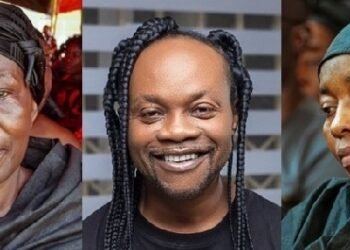In recent years, social media has transformed the way communication is done, sharing information, and engaging with one another.
However, it has also become a breeding ground for hostility, particularly when it comes to political discourse. As political polarization increases, so does the tendency for users to attack and insult others based on differing political beliefs.
Political polarization refers to the growing divide between different political ideologies, which social media has exacerbated.
RelatedPosts
Platforms like Twitter, Facebook, and Instagram provide users with a space to express their opinions, but they also amplify extreme viewpoints.
Algorithms prioritize sensational content, leading to echo chambers where users are primarily exposed to ideas reinforcing their beliefs. This environment fosters animosity toward those with opposing views, resulting in a culture of insults and personal attacks.
Renowned playwright and media personality, George Quaye has cautioned social media users to refrain from the attacks and abuse of personalities based on their political stances.
As the country gears up for its upcoming general elections on December 7, 2024, many personalities in the creative arts sector who have declared their political stance have been met with mostly hostile reactions on social media.
“Stop attacking, abusing, insulting, and disrespecting people you barely even know because of some political figure who may never even look your way… This world is very small.”
George Quaye
Meanwhile, NDC flagbearer and former President John Dramani Mahama will be competing against Vice-President and NPP flagbearer Dr. Mahamudu Bawumia, New Force Movement leader Nana Kwame Bediako, and Movement for Change leader Alan Kyerematen.
When users resort to insults, it undermines the ability to engage in meaningful conversations. Civil discourse is crucial for a healthy democracy, allowing individuals to discuss differing opinions and seek common ground. Attacks and insults shut down dialogue and create an atmosphere of hostility.
The emotional toll of online attacks is significant. Individuals targeted by insults experience anxiety, depression, and a sense of isolation. The fear of backlash also deters people from expressing their opinions, leading to a less diverse range of voices in political discussions.

Political insults erode trust not only between individuals but also in institutions and democratic processes. When people feel attacked for their beliefs, they become disillusioned with the political system, leading to disengagement and apathy.
Continuous exposure to hostile interactions normalizes aggressive behavior in political discussions. This normalization spills over into real-world interactions, where individuals feel justified in expressing hostility toward those with differing views.
Encouraging Respectful Engagement
Social media users are urged to adopt a more respectful approach to political discourse to combat the culture of insults and attacks.
Before responding to a political post, individuals should take a moment to consider the perspective of the other person. Understanding where someone is coming from helps mitigate the impulse to attack and encourage more thoughtful responses.
When expressing disagreement, individuals are encouraged to frame their comments using “I” statements. For example, saying “I feel that…” rather than “You are wrong because…” helps reduce defensiveness and promote open dialogue.
Active listening fosters mutual respect and leads to more productive conversations.
If a conversation becomes hostile, it is okay to disengage. Setting boundaries about acceptable communication helps maintain a respectful environment.
Share content that promotes understanding and constructive dialogue. Highlighting examples of civil discourse inspire others to follow suit.
Social media platforms also have a responsibility to create a healthier online environment.
Enforcing rules against hate speech and personal attacks helps deter hostile behavior and algorithms should be adjusted to prioritize content that encourages constructive discussions over sensational or inflammatory posts.
The call for social media users to stop attacking and insulting others based on politics is more than just a plea for civility; it is a necessary step toward fostering a healthier democratic process.
In an increasingly polarized world, it is essential to remember that shared humanity transcends political differences.
Creating a respectful online environment is not only beneficial for individual well-being but is also crucial for the health of Ghana’s democracy.























